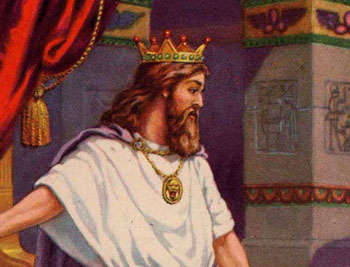
With our second and third class sessions on Old Testament Poetic Books, we covered our introduction to this material on pp. 14???31 of our syllabus. With this presentation, we looked at five introductory issues for this class: (1) characteristics of the Poetic Books, (2) general information about the Poetic Books, (3) Wisdom in the Old Testament, (4) the Poetic Books & Wisdom, and (5) theology in the Poetic Books.
I will briefly expand on the last two subjects. In examining the Poetic Books & Wisdom, we looked at the books covered in our class as they relate to poetry and wisdom literature (Job, Psalms, Proverbs, Ecclesiastes, Song of Solomon and Lamentations). Only three of the books treated in this class as well as a few psalms can be classified as wisdom: Job, Proverbs, Ecclesiastes and a few psalms (1, 15, 36, 37, 49, 73, 112, 119, 127, 128, 133). The wisdom literature is only a portion of the material that we cover in OT Poetic Books. The rest of the material we cover is the majority of the Psalms that are not wisdom, Song of Solomon, and Lamentations.
As far as the wisdom material goes, there are two broad categories of wisdom: contemplative and practical. Contemplative wisdom focuses on the seeming inequities of life, like Job, and the solution to the enigmas of life, like Ecclesiastes. Practical wisdom, as in Proverbs and a few psalms, is down-to-earth, how to succeed living under the terms of the Mosaic Covenant.
In dealing with theology in the Poetic Books, we initially looked at a brief introduction to biblical theology. This was followed by looking at what the Poetic Books present about God and man. In examining God, we looked at God’s attributes (such as infinity, wisdom, freedom, incomprehensibility, holiness), his relationship to the universe (such as his plan for the universe, creation, preservation, and providence), his sovereign control of the universe. To mention one of God’s attributes, Job and Ecclesiastes strongly affirm his freedom. This attribute means that God’s will is not bound by anything outside of Himself. God is only limited by His nature and will.
The poetic books presents man as being finite and sinful. They also deal with man???s death and immortality. Finally, they stress a number of man’s responsibilities. We noted three of man’s duties: his obligation to fear God, to be diligent in his work, and to judiciously enjoy life.
Technorati Tags:
Poetic Books
Leave a Reply
You must be logged in to post a comment.